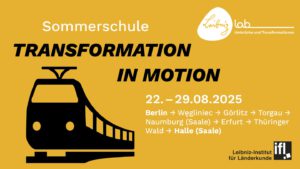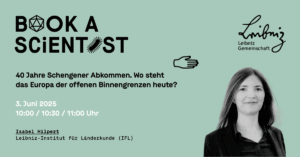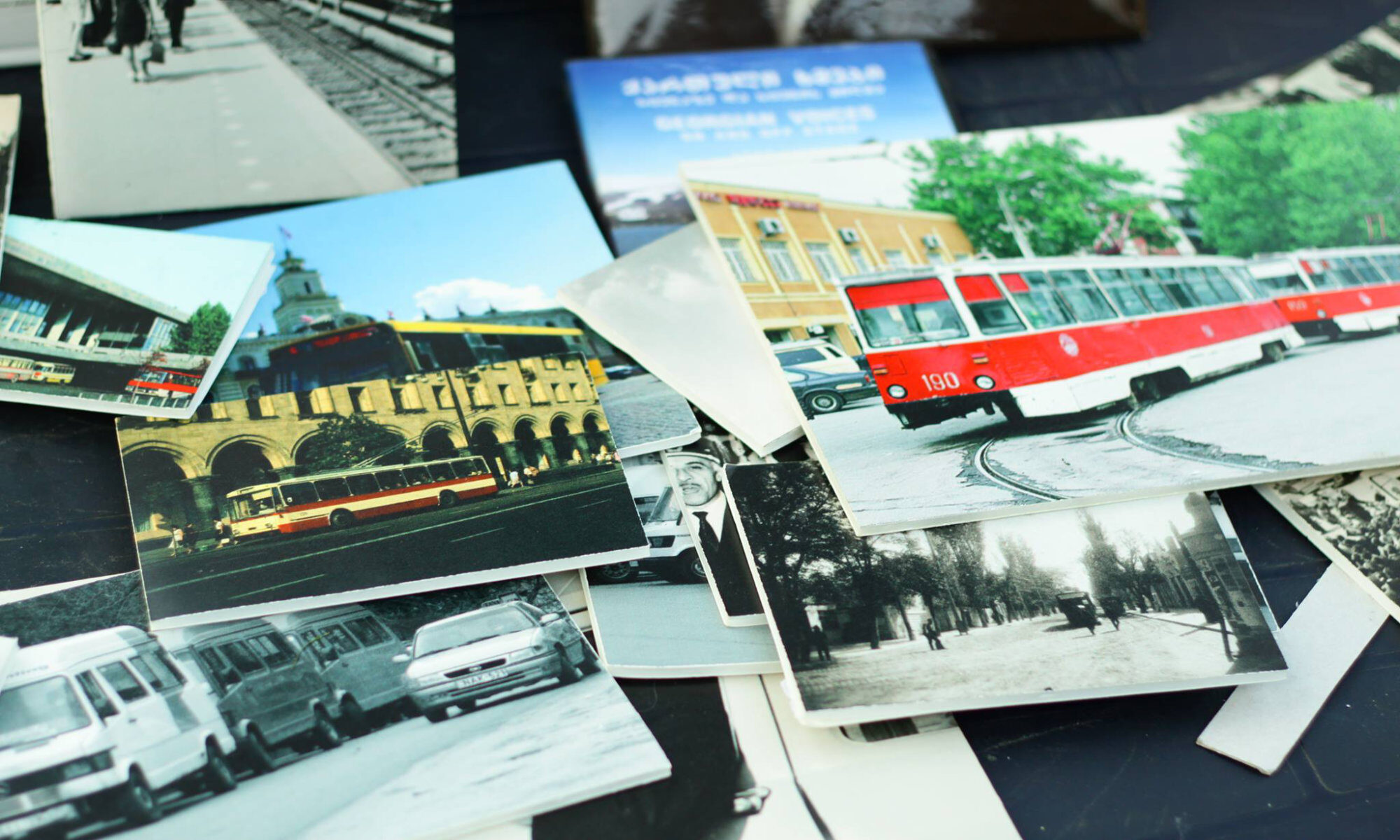Seminar: Mapping Mobility Transition in Central Asia: Sustainability, Power and International Financial Institutions (Bishkek trolleybus case study)
Tuesday 8 July, 16:00, room 407.
Schongauerstraße 9, Leipzig
Leibniz Institute for Regional Geography (IfL), Leibniz-Institut für Länderkunde
Visiting Fellows Programme – 2025
The CoMoDe project, ‘Contentious Mobilities: Rethinking Mobility Transitions through a Decolonial Lens (CoMoDe)”
The IfL Visiting Fellowship Programme, ‘Mobility Transition in Central Asia: Sustainability, Power and International Financial Institutions (IFIs)’, will focus on the case of Bishkek’s wasted trolleybus system, which was once the most sustainable form of transport in the city. In recent years, public concern has grown over rising levels of air pollution in Bishkek. According to IQAir, an air quality information platform, Bishkek often ranks among the world’s most polluted cities. In an attempt to address this issue, Bishkek City Hall, in collaboration with the Asian Development Bank (ADB), intends to purchase 120 electric buses to replace the trolleybuses that were financed by a loan from the European Bank for Reconstruction and Development (EBRD).
(more…)
Open Call for the „Transformation in Motion“ summer school
The Leibniz Institute for Regional Geography (IfL) invites researchers, students, media and art professionals to take part in a one-week train journey through transformation regions in East Germany and Poland. Applications are open until 15 June 2025.
The summer school entitled ‘Transformation in Motion’ starts on 22 August 2025 in Berlin. The route leads via Węgliniec, Görlitz, Torgau, Naumburg (Saale), Erfurt and the Thuringian Forest and ends in Halle (Saale) on 29 August 2025. The journey along past and present borders is intended to offer participants a deeper insight into the social, economic and ecological changes that are summarised under the term transformation. The focus will be on phenomena such as structural change, transport and climate issues, cultural initiatives and specific aspects of urban and regional development.
(more…)
Meet Mariya Petrova and Dr. Wladimir Sgibnev at “Book-A-Scientist” 2025!
At “Book a Scientist” on 3 June 2025, anyone who is curious and thirsty for knowledge will have the opportunity to talk to an expert from the Leibniz Association for 25 minutes and ask everything they have always wanted to know about their favourite topic.
You can now book your discussion with a Leibniz scientist. To do so, click on one or more dates of your choice on the event website and fill in the corresponding booking form. The individual, 25-minute one-to-one meetings will take place online on 3 June 2025 between 10 and 11 am and 4 and 5 pm. The offer is free of charge.
All topics and dates can be found here:
https://www.leibniz-gemeinschaft.de/ueber-uns/neues/veranstaltungen/book-a-scientist
Mariya Petrova
Transport reforms in Uzbekistan: a view from the inside
After years of cuts and stagnation, Uzbekistan has recently started investing in the modernisation of public transport and mobility infrastructure in general. However, the process is characterised by complex social and political conflicts and hurdles: Shortage of skilled labour, authoritarian political culture, the (vested) interests of decision-makers. What are the perspectives of the people working at the various levels of the system
Mariya Petrova is a researcher in the Mobilities & Migration research group focussing on infrastructures in the (post-)Soviet space.
Dr. Wladimir Sgibnev
Mobility in rural areas: perspectives and strategies for coping with everyday life
Everyday mobility in peripheral areas requires solutions that go beyond “urban” concepts. The widespread unease of being dependent on one’s own car is an important signal for discussions on the mobility turnaround. What seems realistic is a mix of local supply, coordinated or on-demand public transport services and – in the medium term – probably also the car.
Dr Wladimir Sgibnev coordinates the IfL research group ‘Mobilities and Migration’ and deals with issues of mobility in peripheral areas, among other things.
